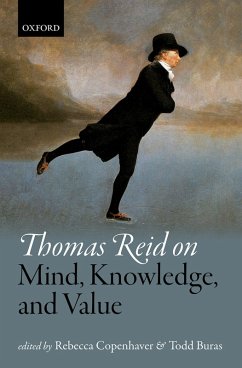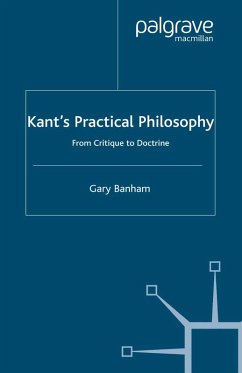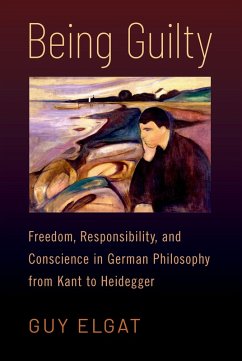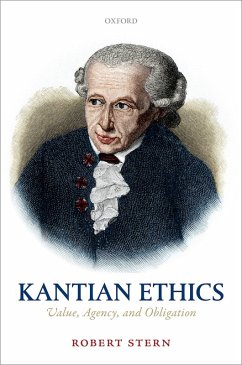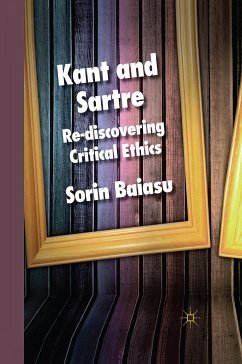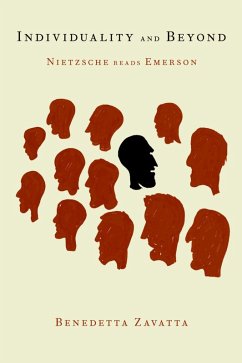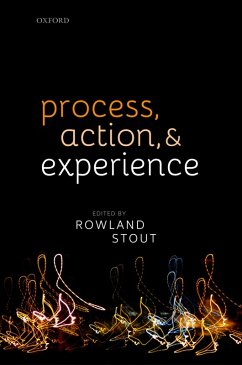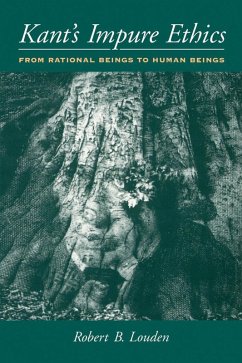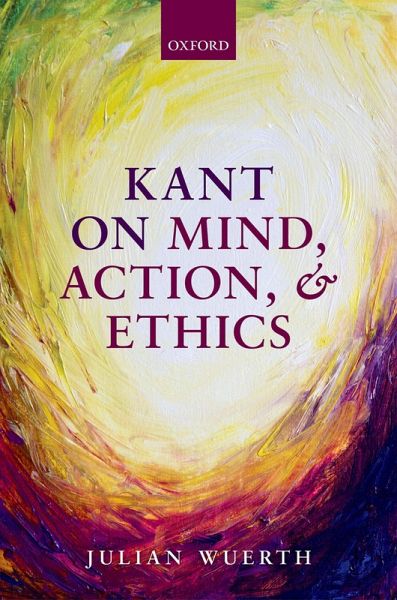
Kant on Mind, Action, and Ethics (eBook, PDF)
Versandkostenfrei!
Sofort per Download lieferbar
39,95 €
inkl. MwSt.
Weitere Ausgaben:

PAYBACK Punkte
20 °P sammeln!
In this book Julian Wuerth offers a radically new interpretation of Kant's theories of mind, action, and ethics. As the author of a Copernican revolution in philosophy, Kant grounded his philosophy in his positive theory of the mind, which remains an enigma two centuries later. Wuerth's original interpretation of Kant's theory of mind consults a far wider range of Kant's recorded thought than previous interpretations, revealing a fascinating evolution in Kant's thought in the decades before and after his 1781 Critique. Starting in the 1760s, Kant recognized the unique status of our epistemic c...
In this book Julian Wuerth offers a radically new interpretation of Kant's theories of mind, action, and ethics. As the author of a Copernican revolution in philosophy, Kant grounded his philosophy in his positive theory of the mind, which remains an enigma two centuries later. Wuerth's original interpretation of Kant's theory of mind consults a far wider range of Kant's recorded thought than previous interpretations, revealing a fascinating evolution in Kant's thought in the decades before and after his 1781 Critique. Starting in the 1760s, Kant recognized the unique status of our epistemic contact to ourselves. This is the sole instance of our immediate epistemic contact with a substance, of being a substance, and it is the sole instance of epistemic contact with something other than the particular states of inner sense. Contrary to empiricists, Kant thus rejects the reduction of the self to a bundle of mental states of inner sense. But Kant also rejects the rational psychologists' assumption that the souls substantiality and simplicity implies its permanence, incorruptibility, and immortality. As Kant developed his transcendental idealism, he eventually pinpointed the source of their errors, a source neither unique to a particular, historical school, nor random. It is instead a deep, natural, and timeless transcendental confusion. Kants new account of substance allows him to draw new distinctions in kind between sensibility and understanding and between phenomenal and noumenal substance, setting the stage for a transcendental argument that only at the phenomenal level do substantiality and simplicity imply permanence and incorruptibility. Wuerth next undertakes a groundbreaking study of Kant's theory of action and ethics. He first maps Kant's notoriously vast and complex system of the minds powers, drawing on all of Kant's recorded thought. This system structures Kant's philosophy as a whole and so provides crucial insights into this whole and its parts, including Kant's theory of action, a persisting stumbling block for interpreters of Kant's ethics. Wuerth demonstrates that Kant rejects intellectualist theories of action that reduce practical agents to pure reason. We are instead irreducibly both intellectual and sensible, exercising a power of choice, or Willkür, subject to two irreducible conative currencies, moral motives and sensible incentives, as Kant makes clear long before his 1785 Groundwork. Immoral choices at odds with the former can thus nonetheless be coherent choices in harmony with the latter. Wuerth applies these new findings about Kant's theory of mind and action to an analysis of the foundations of Kant's ethics. He rejects the dominant constructivist interpretation in favor of a moral realist one. At the heart of Kant's Enlightenment ethics is his insistence that the authority of the moral law ultimately rests in our recognition of its authority. Kant guides us to this recognition of the authority of the moral law, across his works in ethics and his various formulations of the moral law, using a single elimination of sensibility procedure. Here Kant systematically rejects the pretenses of sensibility to isolate reason and its insights into moral right and wrong. Precisely because immoral choice remains a coherent alternative, however, moral virtue demands our ongoing cultivation of our capacities for cognition, feeling, desire, and character.
Dieser Download kann aus rechtlichen Gründen nur mit Rechnungsadresse in A, B, BG, CY, CZ, D, DK, EW, E, FIN, F, GR, HR, H, IRL, I, LT, L, LR, M, NL, PL, P, R, S, SLO, SK ausgeliefert werden.






